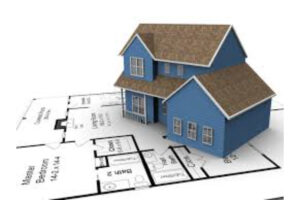Understanding the Legal Jargon in Commercial Leasing Contracts

- Understanding the key terms in your commercial leasing contract is essential when seeking a commercial property for lease in Melbourne.
- Simplifying the legal jargon in commercial leasing agreements empowers both tenants and property owners.
Commercial leasing contracts can seem complicated, especially in competitive markets like commercial real estate in Melbourne. The legal language used in these contracts can be intimidating, but understanding it is vital to protect your rights and interests as a tenant.
In this article, we aim to make these terms simpler and clearer, helping tenants and property owners in Melbourne confidently navigate the commercial leasing landscape.
Lease Term
It refers to the duration of the lease agreement. It’s important to know the specific length of your commercial property lease. Whether it’s a fixed term or open-ended. Additionally, understanding any renewal or termination clauses is vital for sustainable investment.
Rent Increase
When you are renting a commercial property, you should know that commercial leases often include clauses for rent escalation. Rent escalation means the rent can increase at specific intervals. It’s essential to know the escalation rate and frequency to budget your lease payments effectively. Make sure you understand how much and how often this will happen.
Common Area Maintenance (CAM) Charges
CAM charges are extra costs for keeping shared areas like hallways, parking lots, or lobbies clean and safe. [1] Being aware of such charges will ensure your account for these costs in your budget.
Security Deposit
A security deposit is a sum of money paid by the tenant to protect the landlord against potential damages or unpaid rent. [2] A security deposit is not a legal requirement. Still, when property owners put their commercial property for lease, they expect some guarantee, so your lease agreements may include a security deposit. As a tenant, you must be clear on the deposit amount and when and how you’ll get it back.
Net Lease and Its Types
It is a common type of real estate lease. In a net lease, tenants have to pay expenses related to taxes, insurance, or maintenance in addition to the base rent.
In the case of the net lease, the base rent will be lowered compared to traditional leases, as tenants will have to cover those other expenses related to tax, insurance, or maintenance. There are three types of net leases;
Single Net Lease (N Lease): In a single net lease or ‘N’ lease, tenants will pay for property taxes in addition to the base rent. Other forms of expenses, such as maintenance and insurance, will be the landlord’s responsibility.
Double Net Lease (NN Lease): Double net leases are very common in commercial real estate leasing. In this case, tenants will cover additional expenses like taxes and insurance premiums.
Triple Net Lease (NNN Lease): In an NNN lease, tenants have to pay property taxes, insurance premiums, and maintenance costs in addition to rent. Due to these additional expenses, the base rent is generally lower compared to the other two net leases.
Sublease and Assignment
These types of clauses deal with whether you can sublease the space to another party or assign your lease to a different tenant. A sublease clause allows you to pass on the part of your lease obligations to a third party, while an assignment clause will enable you to hand over the whole of the property. Knowing your rights here is essential for flexibility.
Use Clause/ Permitted Use
When owners list their commercial property for lease in the market, they have the right to decide what their tenants can or cannot do within the premises of their property. The use clause or permitted use clause says what you, as a tenant, can do in the leased space. Be sure it aligns with your business needs and doesn’t limit your operations.
Default and Remedies
A default clause in commercial leasing implies the failure of tenants to comply with the provisions of the lease agreement. While remedying implies rectifying the oversight. Understanding a lease default and the potential remedies is crucial for every tenant. This section outlines what happens in case of non-compliance with the lease terms, so you need to be prepared.
Renewal Options
Tenants need to understand the renewal clause for commercial property listed for lease, as it ensures continuation in the same market. This clause is essential for businesses that want to stay in the same location. Make sure you know the process for renewing your lease and any associated terms.
Indemnification
Indemnity clauses in a commercial lease protect landlords in case of a third-party problem while your lease agreement is ongoing. [3] This clause transfers liability risk to tenants for injuries or damages to third parties during the lease term. Exceptions exist, allowing tenants to seek indemnity if the third party’s negligence or recklessness leads to loss or damage. Tenants must recognise the implications of indemnity clauses because knowing your indemnification duties can save you from unexpected costs.
In bustling markets like commercial real estate Melbourne, understanding these common leasing terms helps tenants to make smart choices and negotiate effectively. While obtaining and operating in a commercial property listed for lease. For a deeper grasp of these terms in your lease, you can consult a legal expert or real estate pro. By making the legal language in commercial leasing contracts simpler, you’ll protect your interests, save money, and secure a successful and profitable lease deal.




